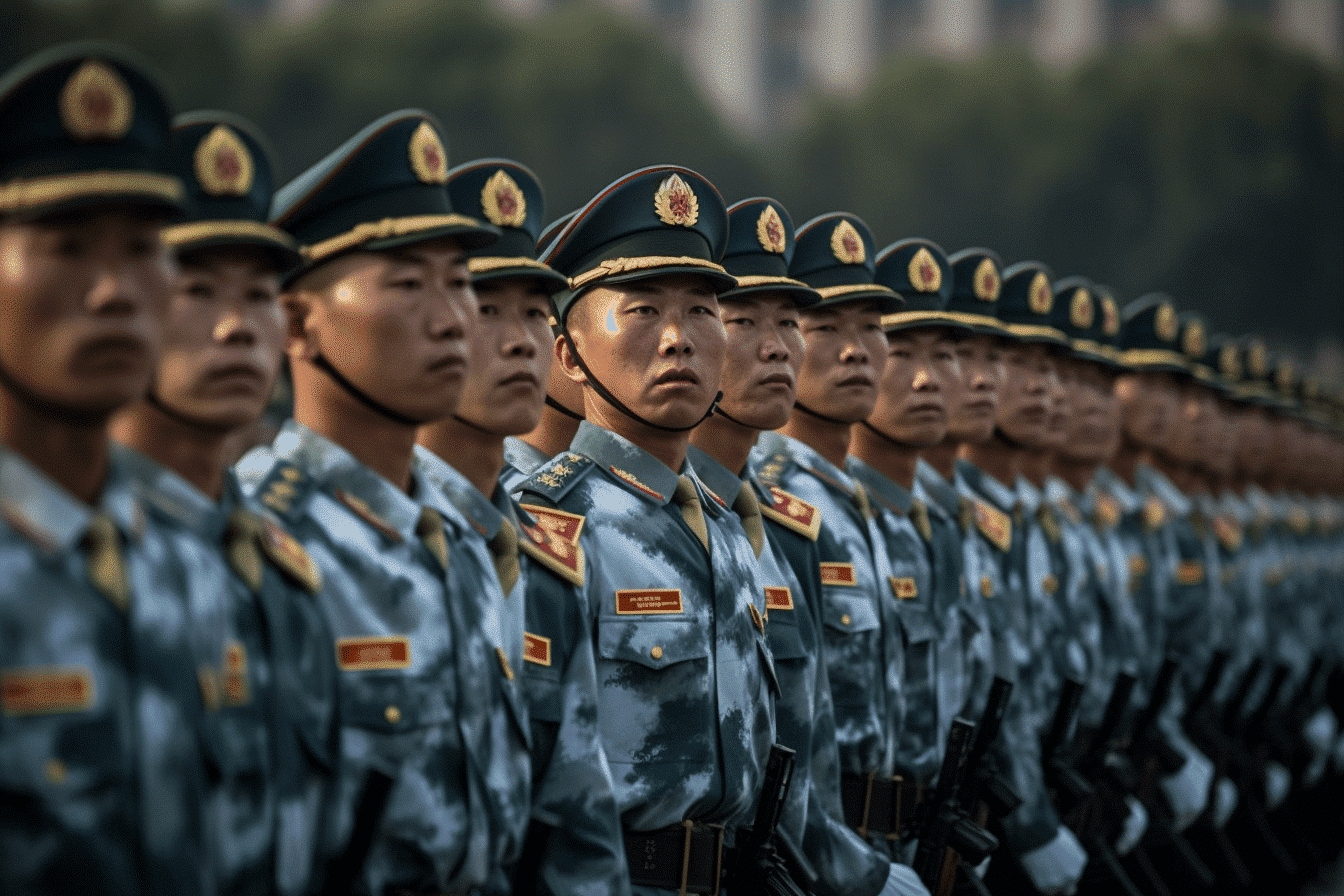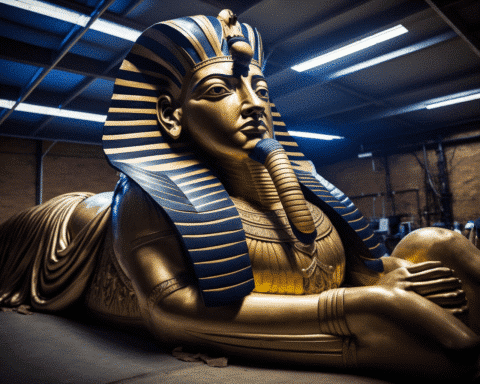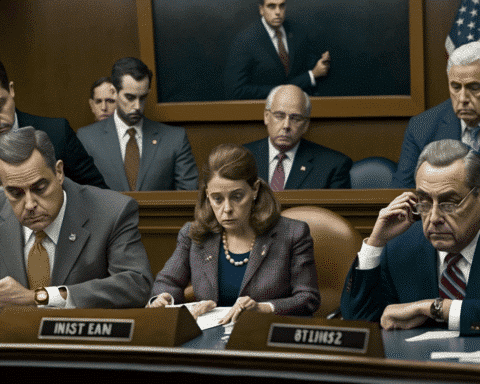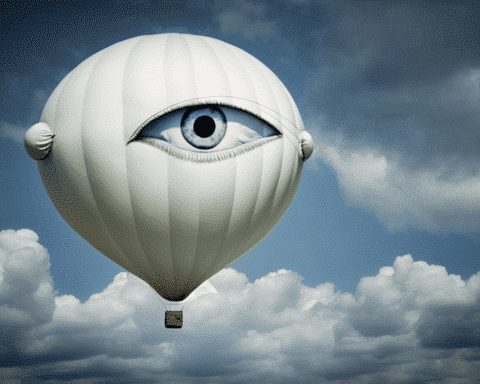Over the past twenty years, Yue Minjun’s self-portraits, typically frozen in animated laughter, have become a defining emblem of modern Chinese art.
These pink-hued caricatures, depicting characters from various societal roles, including military figures, have shattered auction records and earned international acclaim, featuring in exhibitions and galleries across the globe.
However, the renowned Beijing-based artist has recently encountered strong criticism within China. Nationalist commentators have condemned him, calling him a “cultural traitor” and demanding penalties and inquiry into his actions.
Yue is accused of demeaning and belittling the Chinese military force, the People’s Liberation Army (PLA).
The paintings, themed around the military, are currently the primary targets in an escalating assault on creative and cultural liberties. Critics suggest this aggressive, intolerant nationalism has been intensified under the regime of Xi Jinping, considered China’s most authoritarian leader in recent history.
These onslaughts, primarily aimed at artists deemed out of sync with governmental ideologies and values, draw parallels with the Cultural Revolution—a period of political and societal chaos beginning in 1966 that saw arts and culture being harnessed as a Communist Party tool.
In China’s rigidly controlled national discourse, the Chinese military holds a revered and pivotal position—any perceived disrespect could lead to grave repercussions.
A Severe Reprimand: Yue’s case emerged after a severe backlash against Li Haoshi, a Chinese comedian popularly known as House. Li, 31, is under police investigation for a joke he made during a live performance in Beijing, which involved an expression coined by Xi Jinping for the PLA, applied humorously to two stray dogs chasing a squirrel.
This joke, perhaps the world’s costliest, resulted in a fine of over $2 million for Li’s employer. It cost Li his job and future career prospects and potentially his freedom. In 2018, under Xi, China instituted a law prohibiting the defamation of national “heroes and martyrs,” a crime that carries up to a three-year prison sentence.
The severe punishment shocked many stand-up comedy fans, who didn’t find Li’s joke offensive or harmful. A recording from the performance revealed the audience responded to Li’s joke with laughter.
Stand-up comedy has enjoyed an exponential rise in popularity in China, partially thanks to online shows such as “Rock and Roast,” particularly appreciated during the country’s strict zero-Covid lockdown.
However, to remain in business in China, the comedy industry practices stringent self-censorship and intentionally avoids political satire, instead gaining traction amongst primarily young, professional urbanites with incisive jokes about everyday issues like gender inequality and extreme work culture.
A US-based researcher, who studies Chinese popular culture, said, “The government may endure jokes and complaints on some social issues and private life, but if one touches on state institutions, leaders, or the military, authorities would have to take action – especially in the face of a fierce online outcry.”
Historical Significance: The official rebuke of Li followed swiftly after an online nationalist uproar. Even the PLA added its voice, with its Western Theater Command commenting on social media that Li’s apology was insufficient to quell its anger.
Observers of Chinese politics explain this vehement reaction as the PLA is vital in Communist Party history and Xi Jinping’s assertive nationalism.
Professor Rana Mitter, an expert on modern Chinese nationalism at the University of Oxford, says, “The history of the Chinese Communist revolution is inseparable from the history of what we now think of as the PLA,” emphasizing that the PLA is primarily the Communist Party’s army, making an insult to the military tantamount to an affront to the party.
Mitter also noted an increased militarization in public life under Xi, where the PLA holds higher esteem in China than armies in other major global economies, making perceived offences especially sensitive.
Experts suggest this sensitivity will intensify under Xi’s third term, obtained by overturning the party’s long-standing power transition norms and eliminating presidential term limits.
The Future: So far, Chinese authorities haven’t publicly responded to the nationalist outrage against Yue, but some of his artwork has been blocked from Weibo, China’s heavily censored version of Twitter.
Many social media users have defended Yue, arguing the political witch-hunt has crossed limits.
Hu Jiamin, a Chinese artist currently residing in France, suggests there will always be targets for China’s nationalist commentators and regular users, who are vying for online attention.
For the future of Chinese stand-up comedy, the US-based researcher studying Chinese popular culture remains “cautiously optimistic.” On the one hand, the genre helps the authoritarian government gauge public sentiment, while on the other, comedy shows allow the public to vent their frustrations.
“They serve as a safety valve for the public to air discontent about various social issues,” they said.
Despite the rise of hardline nationalism and seemingly shrinking space for dissenting voices, artists and comedians in China continue to tread the fine line of self-expression within the bounds set by the state. The recent backlash against artists and comedians seemingly stepping over the bar indicates the intensifying sensitivities around national symbols and institutions. It is a stark reminder of the balancing act required to navigate the country’s cultural landscape. However, the enduring popularity of these forms of expression gives some cause for cautious optimism about their future in China.




